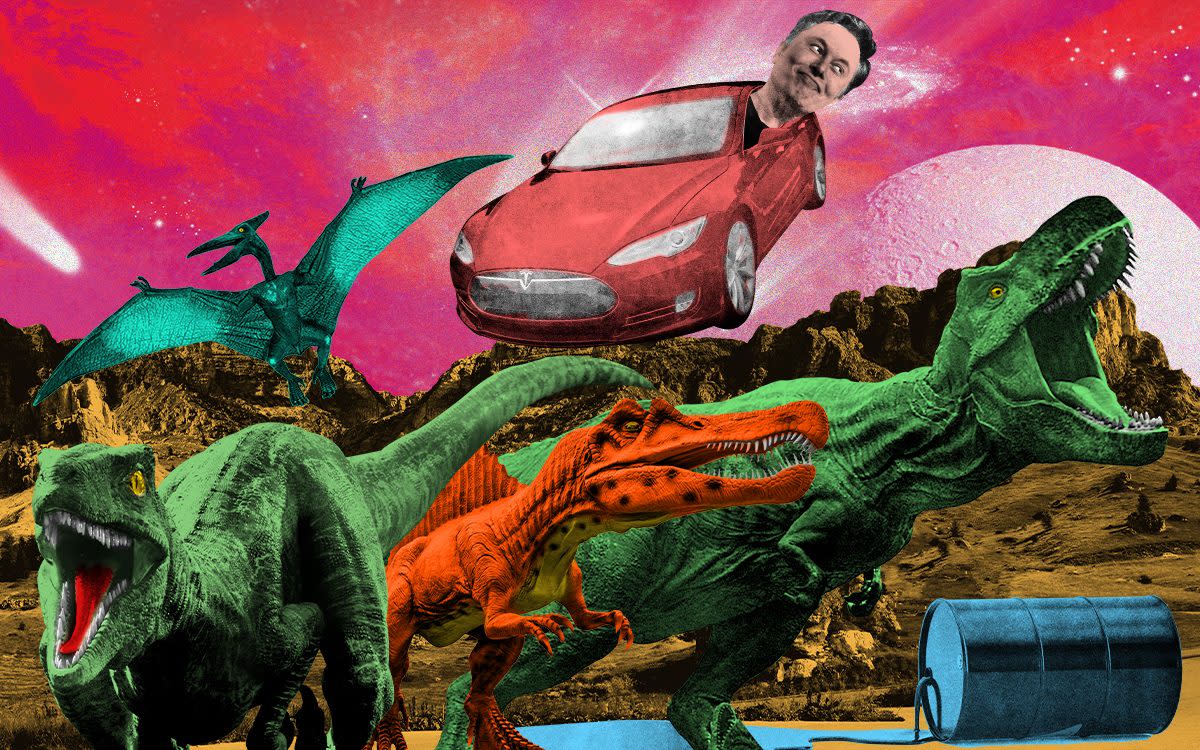How Big Oil's beasts risk being reduced to the role of dinosaurs

They used to dominate the stock market. Today, the big beasts of Big Oil are at risk of becoming dinosaurs: shrivelled remnants of their former selves.
In terms of market value, ExxonMobil, BP and Shell combined are now worth less than Tesla alone.
Once the world’s biggest company, at $146bn (£113bn) Exxon is worth only a fraction of the $432bn value of Elon Musk’s electric carmaker.
The titans of Big Tech have taken over the corporate jungle as a toxic cocktail of swooning oil prices and jitters over long-term demand for crude oil have sapped their valuations.
Meanwhile, investors fret about stranded assets and the financial risk that much of the oil and gas in their reserves may never be produced because of growing concerns about climate change.
Belatedly and in different ways, the oil giants are retrying to reinvent themselves. Have they left it too late? Is the industry doomed or can it embrace the colossal opportunity presented by the climate transition?
In a new multi-part series, The Daily Telegraph explores the future of Big Oil.
In the first installment, published online today, Ambrose Evans-Pritchard explores the role of carbon capture and storage.
Once derided as an impossible dream, investment in CCS technology, where carbon dioxide is stripped from the emissions produced by power plants and factories for secure long-term storage, has surged in recent years.
Some see it as the only realistic way to dramatically reduce CO2 emissions and prevent runaway climate change without a total overhaul of the global energy system on which billions of people rely for their heat, power and light.
Increasingly, oil and gas companies are viewing it as an existential technology – the only possible quick fix that could allow them to continue operating their core business of finding, producing and refining oil and gas without radical changes.
Read more in our Future of Big Oil series:
Introduction: How Big Oil's beasts risk being reduced to the role of dinosaurs
Part one: Why fossil fuel dinosaurs may still have life in them yet
Part two: Big Oil's big bet to avoid extinction
Part three: The oil giant that went from dirty fuel to clean energy in a decade
Part five: Peak oil is coming - it's just a question of when
Part six: Energy giants face end of an era as peak oil demand dries up


